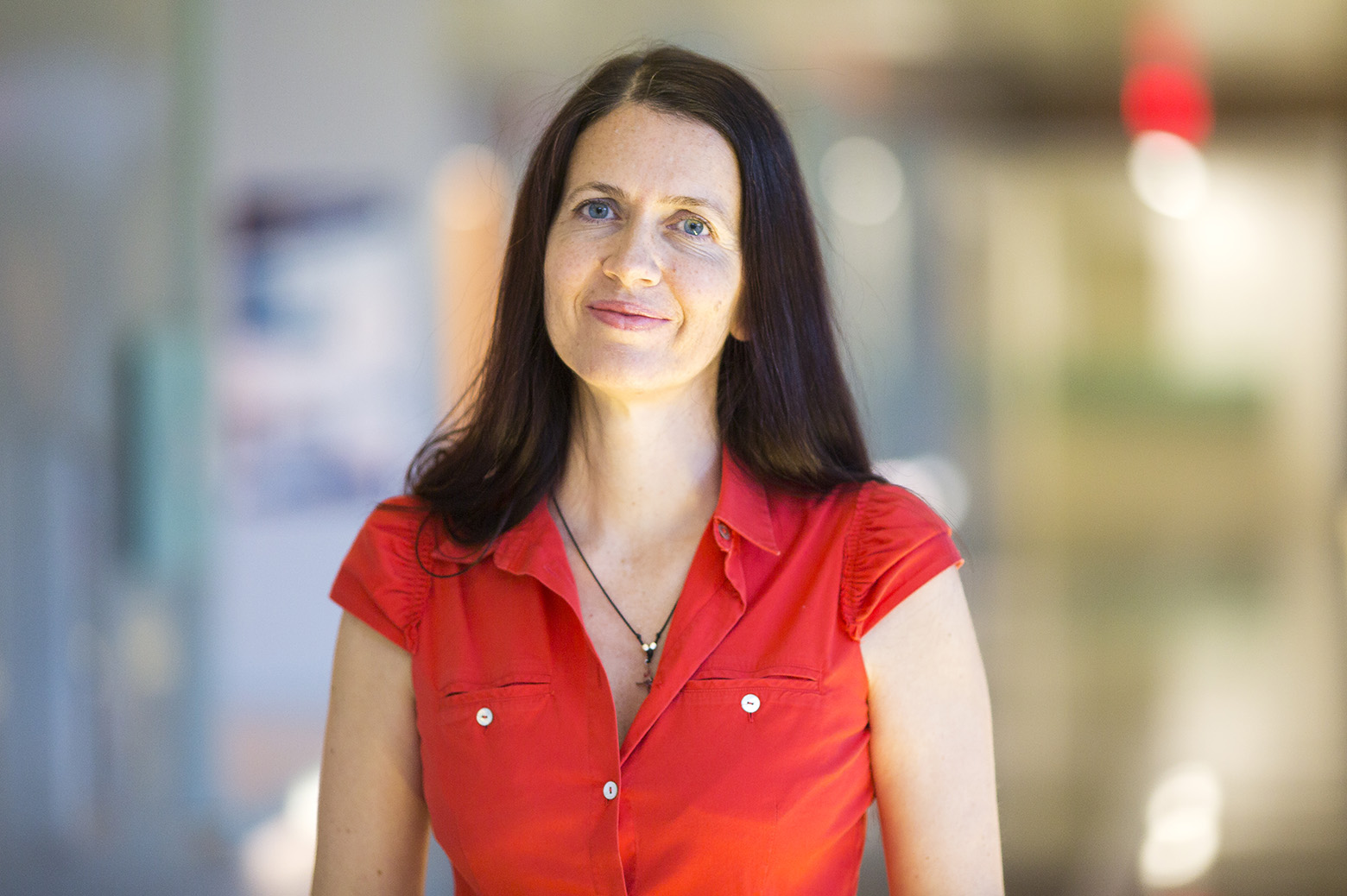Faculty spotlight: Rada Mihalcea
Rada Mihalcea is a rock star professor of Electrical Engineering and Computer Science at U-M’s College of Engineering and a champion for the growth and retention of women in that field.

 Enlarge
Enlarge
Rada Mihalcea is a rock star professor of Electrical Engineering and Computer Science at U-M’s College of Engineering and a champion for the growth and retention of women in that field. She sat down to talk with us about why she loves what she does and wants other women to love it, too.
Q: When did you first become interested in computer science?
In middle school, I liked math and was good at it, going to Math Olympiads every year. When picking a high school, I selected the school that was best in math, and it included computer science classes. It was one of its kind in the late 80s and early 90s. It is then when I first got exposed to CS … and the rest is history.
Q: Were there gender differences when you studied computer science growing up?
In my high school in Romania, computer science wasn’t an elective course – all students took it. When I got to college, there were fewer women pursuing a CS degree, but still more than in the U.S. Here, the gap matters more.
Q: What is your primary research focus?
My research focuses on natural language processing – building computer programs that can do interesting things with language. I primarily concentrate on using language to understand people, and that includes computational social linguistics and conversational interactions and how language can be used to understand people and their behavior.
Q: What excites you about your job?
I like teaching and research; I feel like I am playing all day long and I get paid for it. I go after ideas that excite me, and I love the discovery part – finding new things. I never feel like there are things I have to do, there are just things I love to do.
Q: What do you find inspiring about teaching?
I like the magic effect: the eye-opening moment when I see students learning about a concept.
Students are excited about learning things they thought were too challenging but are actually within their reach. They discover how powerful they can be.
Q: You are the faculty champion for Girls Encoded at U-M. Why is that program is important to you?
We are trying to change the stereotypes. There is so much more to computer science than the general stereotypes out there. This field isn’t only for men and isn’t only about programming; there is so much you can do in terms of changing people’s lives for the better.
Q: What does the program include?
We are hosting events to show the diversity of the field and how you can do things you are passionate about in CS:
- We host panels of women in CS, bringing in representatives from companies to share with students what it means to have a career in this field, both professionally and personally.
- We host a “Women in CS” seminar series where speakers have separate opportunities to meet with female faculty and students.
- We’re starting a new “Discover Computer Science” class in the fall that will be open to anyone at U-M but will target women in computing. Our goal is to allow students to discover the beauty of computing and receive mentoring from others in the field.
Q: How can getting involved with Girls Encoded be beneficial to organizations?
The benefit of having companies involved is that it shows students what they can do if they choose a career in CS. They see the different tracks where CS is being used — in finance for banks, in developing AI systems, in consumer understanding, in mobility solutions — and they gain an understanding and the chance to interact with women role models. Our students value that. When they think about positions for their careers, interacting with students early on is a benefit for the recruiting efforts of companies. There are opportunities to get to know them early on and provide mentoring. If female students keep seeing the same company name, they will probably consider that company when they start looking for a job.
The challenge becomes one of investment. If we really want the needle to change in terms of diversity in the computer science field, it takes a lot of effort. It’s all hands on deck.
 MENU
MENU